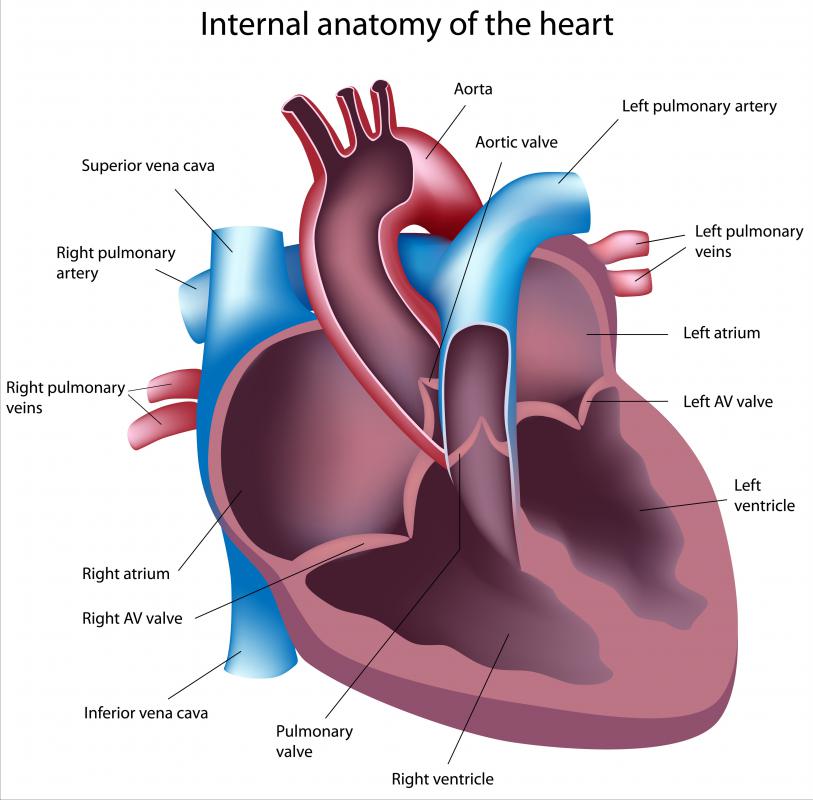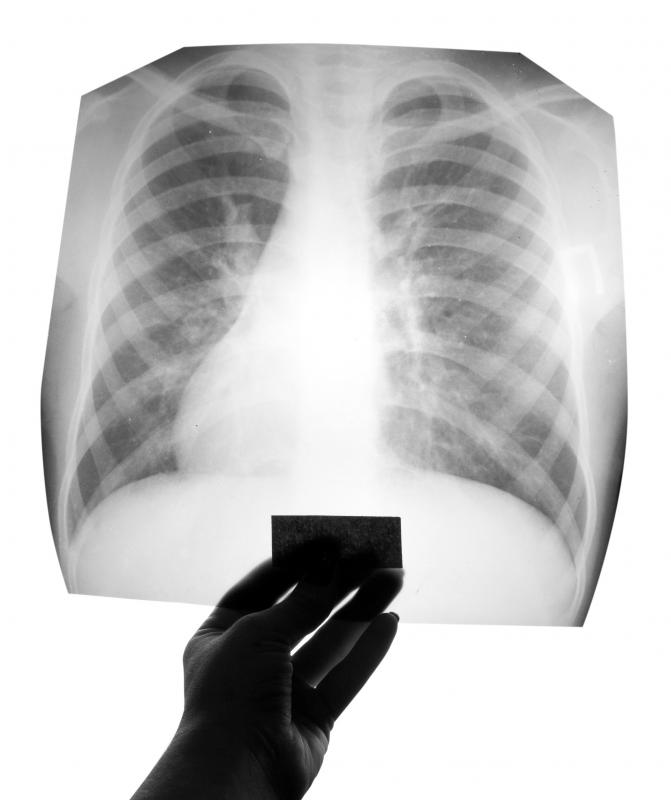At WiseGEEK, we're committed to delivering accurate, trustworthy information. Our expert-authored content is rigorously fact-checked and sourced from credible authorities. Discover how we uphold the highest standards in providing you with reliable knowledge.
What is Supraventricular Tachycardia?
Supraventricular tachycardia is a generic term for a faster-than-average heart rate. The condition is most often paroxysmal, meaning that a person experiences random, isolated episodes of rapid pulse and heart palpitations. Many people experience mild instances of supraventricular tachycardia without even noticing symptoms, and most cases do not pose any health risks. If an individual suffers from frequent chest tightness, anxiety, and shortness of breath, however, he or she should visit a doctor as soon as possible. Depending on the cause, a doctor can prescribe medications, suggest dietary and lifestyle changes, or recommend surgery to prevent serious heart problems.
Most cases of supraventricular tachycardia can be attributed to external factors, especially alcohol, caffeine, tobacco, and illicit drug use. In addition, people who do not maintain healthy diet and exercise routines are at risk of developing conditions that put excess strain on the heart and lungs, leading to a rapid heart rate. A person may also experience supraventricular tachycardia because of a congenital heart defect, hyperthyroidism, or an inherited pulmonary disease.

Some people do not experience any physical symptoms of tachycardia, and their condition may go undiagnosed until a doctor notices it while screening for a different condition. When symptoms are present, a person is likely to experience an immediate sense of anxiety and a tight feeling in the chest. Breathing can become shallow and rapid, and it may be possible to feel the heart beating irregularly within the chest. A severe episode of tachycardia can cause a person to become lightheaded and dizzy, and he or she may faint.

It is important to visit a doctor or an emergency room at the first signs of supraventricular tachycardia. Emergency procedures to stabilize blood pressure and breathing are necessary if a patient is faint and unresponsive. In a non-emergency situation, the doctor can ask about symptoms and conduct a series of diagnostic tests to determine the underlying causes. An electrocardiogram is a common test that detects electrical activity in the heart via wires that are attached to the chest and wrists. The doctor may also decide to conduct a chest x-ray and draw a blood sample to further investigate tachycardia.
Treatment for supraventricular tachycardia depends on the specific cause. Patients who have experienced problems related to their dietary or lifestyle choices are instructed to make immediate changes. They are given access to resources in order to quit using drugs and alcohol and learn about healthy living. Patients may also be prescribed medications called antiarrhythmics to help stabilize the heart rate and prevent future instances of tachycardia. Congenital defects and life-threatening heart problems often necessitate surgery to avoid complications.
AS FEATURED ON:
AS FEATURED ON:












Discuss this Article
Post your comments